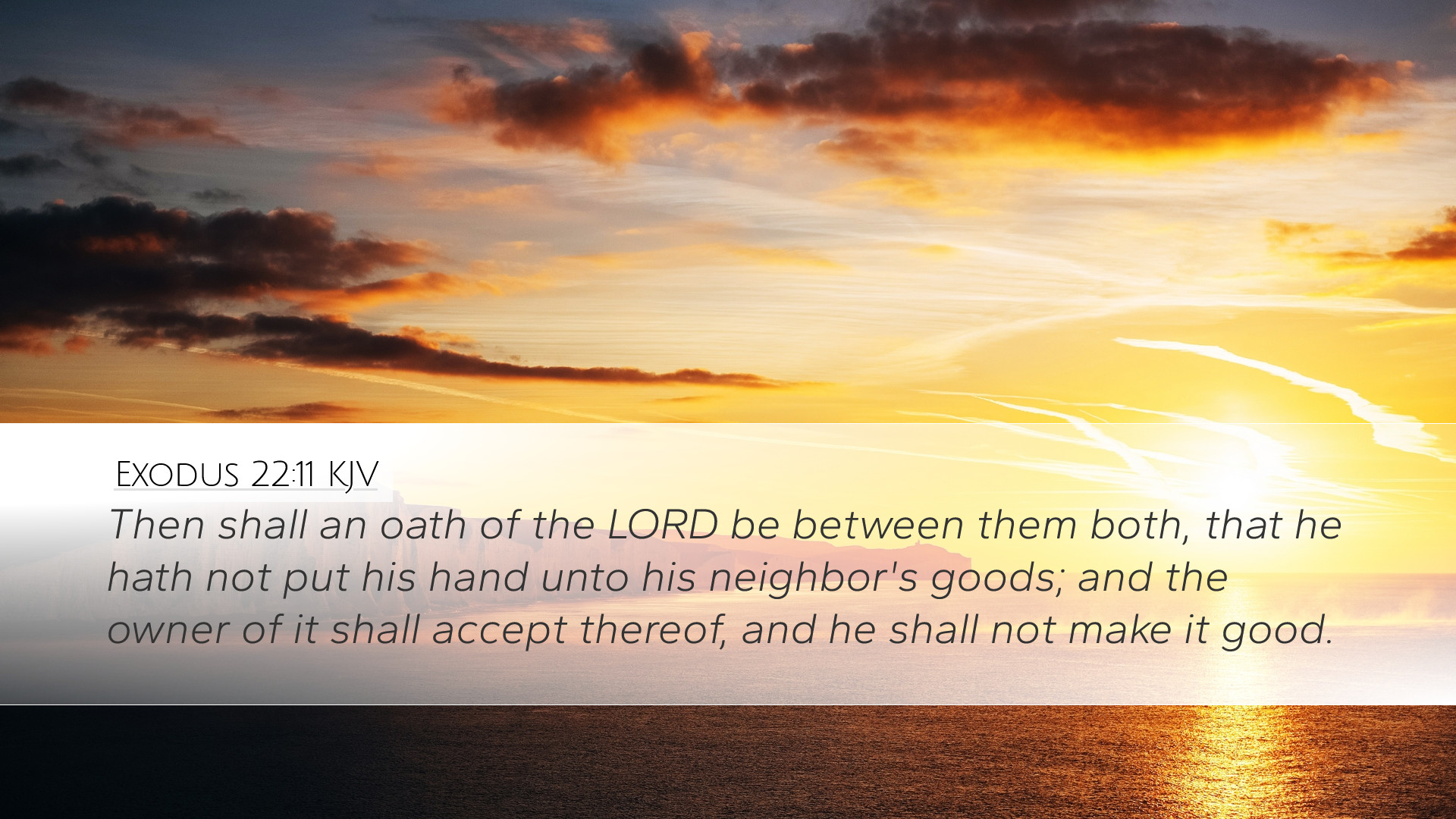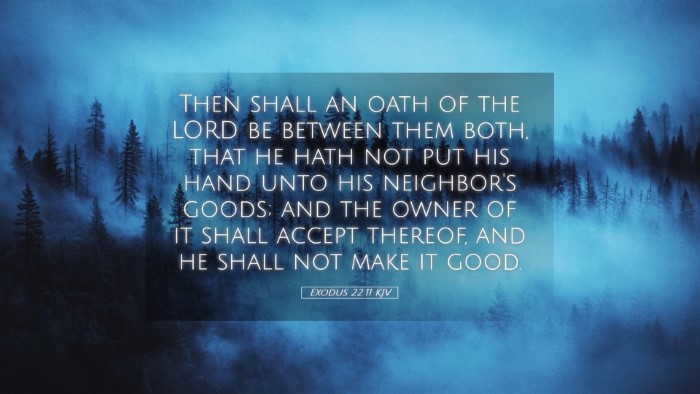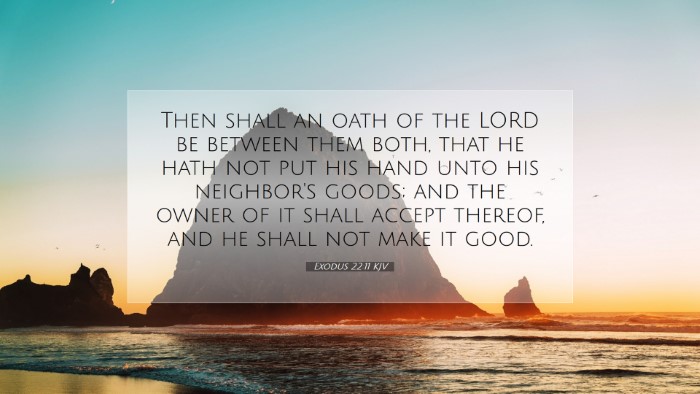Exodus 22:11 - Biblical Commentary
Verse Context: Exodus 22:11 reads: "Then shall an oath of the LORD be between them both, that he hath not put his hand unto his neighbour's goods; and the owner of it shall accept it, and he shall not make it good." This verse is situated within a series of laws regarding social justice, particularly concerning property rights and the responsibilities of individuals.
Analysis of Key Themes
This verse emphasizes themes of trust, accountability, and divine oversight in matters of civil law. It addresses the situations where there might be a dispute regarding lost or stolen property.
Trust and Integrity
Matthew Henry highlights the importance of personal integrity in dealings between neighbors. He notes that this verse establishes the necessity for individuals to take an oath when there is a dispute regarding possessions. Trust is essential for communal living, and individuals must safeguard their reputation and integrity.
Divine Oath
Albert Barnes comments on the significance of invoking the name of God in such matters. An oath, as prescribed here, signifies that the matter is not merely of earthly concern but under the watchful eye of the Almighty. This divine affirmation ensures that individuals take their responsibilities seriously and operate within the bounds of righteousness.
Responsibility of Ownership
Adam Clarke elaborates on the implications of ownership and the responsibilities that accompany it. He points out that the owner must accept the outcome of the oath, thus reinforcing the idea that property does not exist without moral obligations. The requirement that the owner acknowledge the oath underscores a profound principle of stewardship.
Theological Implications
This verse has broader theological implications regarding justice, mercy, and the nature of human relationships as governed by divine laws.
Nature of Justice
Exodus 22:11 encapsulates a sense of justice that is both restorative and communal. Each party involved must come to a resolution through an agreed-upon method that respects the relationship amongst individuals as well as their obligations under God’s law.
God’s Oversight in Human Affairs
The verse serves as a reminder that God is actively involved in the affairs of humans. It emphasizes that even in mundane matters of property, divine justice is at play. This can provide assurance to the faithful that God cares about justice and order in society.
Practical Applications
For pastors and theologians, this verse can be a source for sermons or teachings on the importance of integrity, accountability, and divine justice in everyday life.
Integrity in Relationships
The verse encourages the promotion of integrity within personal and communal relationships. Pastoral teachings can focus on the importance of standing by one’s word and avoiding deception.
Handling Disputes
In congregational settings, this verse can inform methods for resolving disputes. Encouraging members to seek resolution through accountability and honesty is crucial, and it aligns with biblical principles of conflict resolution.
Reflection on Ownership
Leaders and scholars can delve into discussions about the nature of ownership, emphasizing stewardship over material possessions. This encourages a culture where communal well-being takes precedence over individual greed.
Conclusion
Exodus 22:11 serves as a profound memento of God's call for justice, integrity, and communal harmony. As both a legal and moral directive, it challenges individuals to examine their ethical practices and relationships with one another. In engaging with this verse, scholars and church leaders can foster deeper understanding regarding the intersection of divine law and human interactions.


